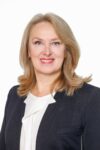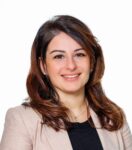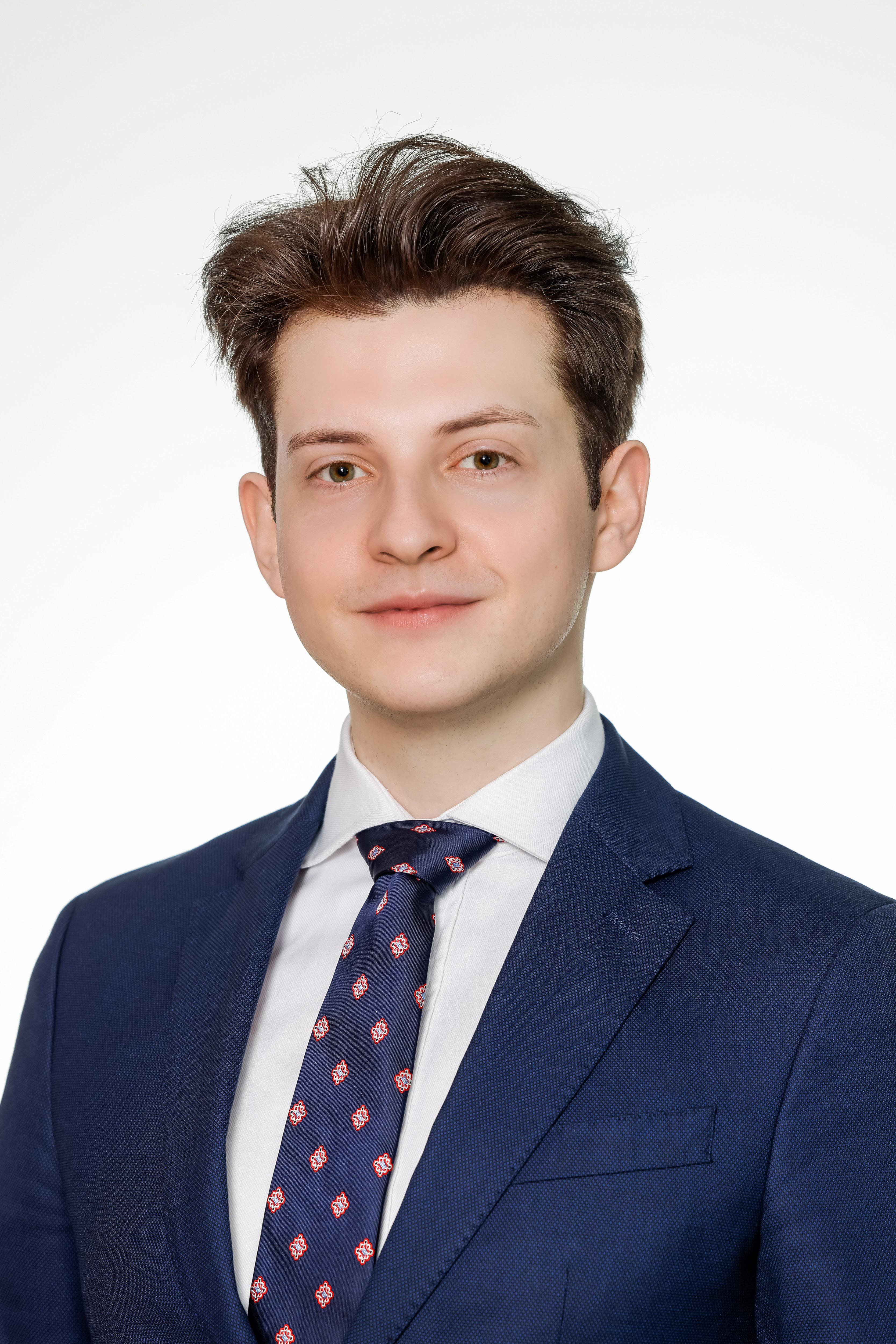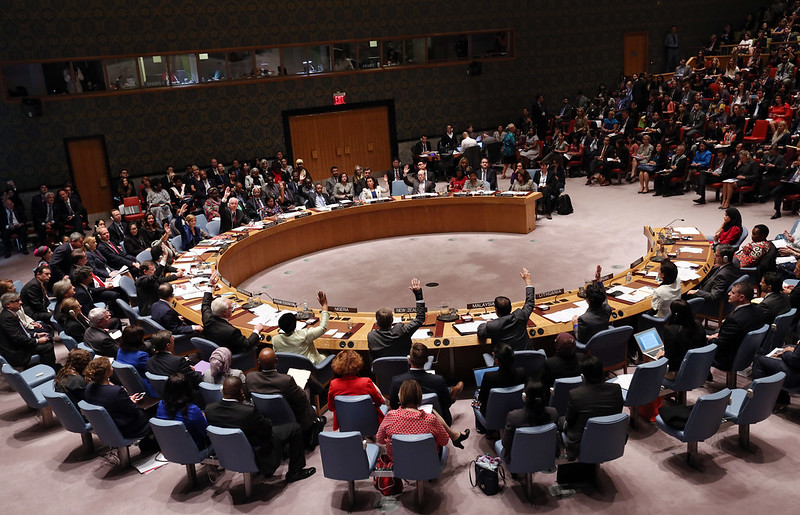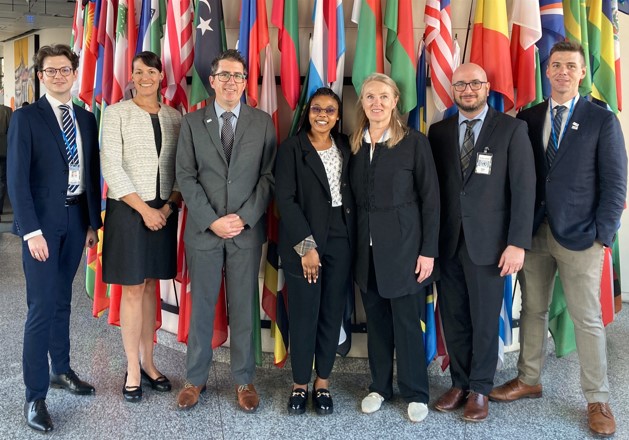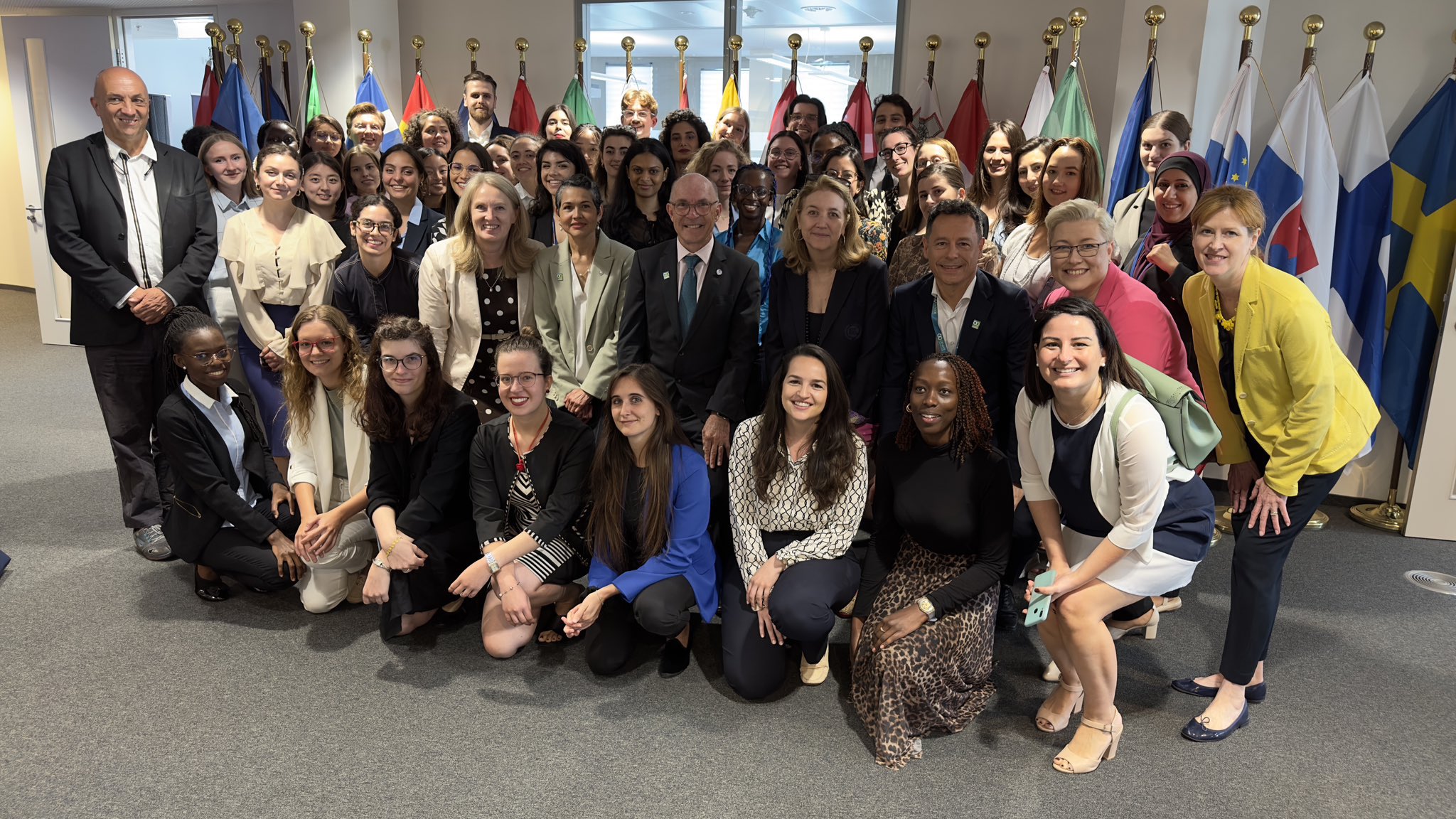
On 6 July 2023, the VCDNP and the Delegation of the European Union to the International Organisations in Vienna held an event focused on empowering the next generation of women in the nuclear field. With support from the International Gender Champions, the event brought together 50 interns and junior staff from 34 countries, working at the International Atomic Energy Agency (IAEA), the Comprehensive Nuclear-Test-Ban Treaty Organization (CTBTO), the UN Office for Disarmament Affairs (UNODA), the World Institute for Nuclear Security (WINS), Open Nuclear Network (ONN), and at diplomatic missions in Vienna.
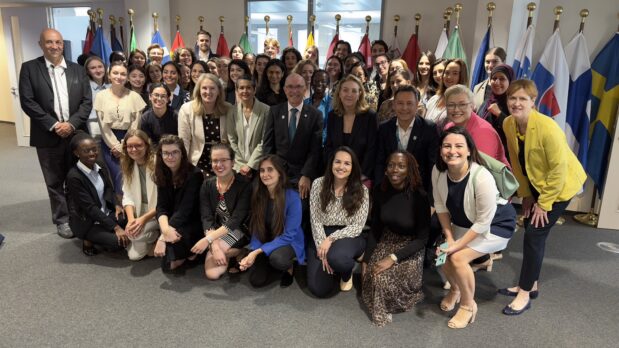
The event started with a panel discussion between professionals representing different job profiles in the nuclear field, including diplomats, international civil servants, technical experts, and independent researchers. They shared their personal career journeys and answered audience questions on finding entry-level jobs, equitable representation in the workplace, and gender mainstreaming at international organisations. In four breakout groups, participants continued discussions on the role of identity in the nuclear field, hands-on career advice, and modernising working methods in the nuclear field.
In her opening remarks, Elena Sokova explained that the event aimed to find ways to provide early-career professionals and especially young women with more opportunities to enter and thrive in the nuclear field. She highlighted the work of the Young Women and Next Generation Initiative (YWNGI), established by the VCDNP and the Istituto Affari Internazionali, to create such opportunities.

Ambassador Klement underlined the EU’s dedication to empowering the next generation of experts in the nuclear field, women in particular. Reflecting on his own career path, he noted the attractive mix of science and politics present in the nuclear field. With a PhD in both international law and theoretical physics, this balance has marked much of his career, including his extensive experience working on the Iran nuclear file. When negotiating on these policy-technical issues it was important to practice active listening and focus on what is being said and what is not being said to fully understand one’s negotiating partner, he said.
Asking for his motivation to continue in the field for over 20 years, he noted that it was a function of loving what he was doing. “If you find something you love,” he advised, “stick with it, even if there aren’t current prospects—they will develop.”
Reflecting on her substantial experience both in and outside of the nuclear field, Emma Web described three elements that one can bring to any job, regardless of the field. First, she discussed the value of “transferrable skills”, i.e. competencies such as communications or analytical skills. In this regard, she said that competency-based interviewing, often the dread of interviewees, could be an advantage to those coming from outside the nuclear field. She emphasised that these skills allow one to look at how an organisation is run and provide fresh thinking into business processes. Second, she discussed the importance of building substantive knowledge in the field. While transferrable skills may get one in the door, it is important to build the content knowledge. Third, she talked about the critical skill of networking. This helps to build knowledge, not just substantively, but also institutionally in the field.
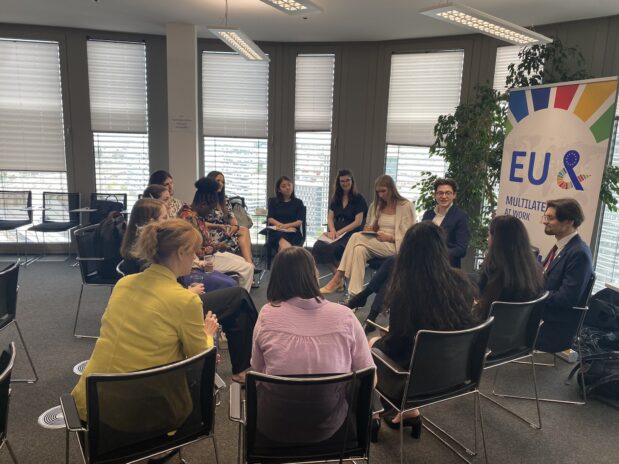
Federica Dall’Arche highlighted the importance of mentorship in empowering women and the next generation. She noted that she herself started in the field by chance, having received a fellowship in nuclear security. She took forward the importance of mentorship in her own career, including as co-founder of the Young Women in Non-Proliferation and Disarmament Mentorship Programme.
She also discussed the increasing prominence of gender in the nuclear field. She was happy to note the ever increasing representation of women, but also remarked that this trend should continue. More research is being dedicated to the role of gender in the nuclear field—as one example, she noted the focus on gender in victim assistance for those affected by nuclear testing, as ionising radiation affects women differently from men.
Sanaa Alvira stressed the importance of creating new opportunities for young experts to become involved in the nuclear field. She referenced the Marie Sklodowska-Curie Fellowship, scholarships offered by WINS to take part in their training activities, and the Certificate in Non-Proliferation Studies offered by the Middlebury Institute of International Studies at Monterey. She noted the value of pursuing these opportunities, even if one does not have a background in nuclear issues. She also noted that, even if women are not typically involved in nuclear issues in one’s country, this should not deter women from entering the field internationally.

The event concluded with a networking session between interns and the following Vienna-based International Gender Champions who are strongly committed to gender equality and women’s empowerment in their governments, organisations, and the wider nuclear field:
